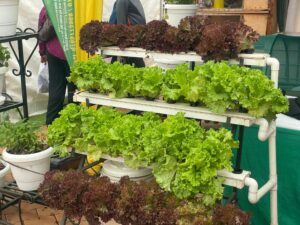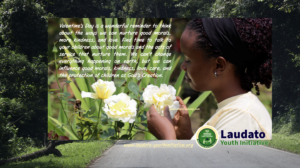Plastic pollution has become a pressing environmental issue in recent years, threatening the delicate balance of ecosystems and posing a significant risk to wildlife and human health. The pervasive presence of plastic waste in our oceans, rivers, and landfills demands urgent attention and concerted efforts towards conservation and restoration initiatives.
Conservation strategies play a vital role in mitigating the impact of plastic pollution on the environment. By implementing measures such as reducing single-use plastic consumption, promoting recycling programs, and advocating for responsible waste management practices, we can significantly decrease the amount of plastic entering our ecosystems. Education and awareness campaigns are essential in fostering a culture of environmental stewardship, encouraging individuals and communities to make sustainable choices in their daily lives.
Restoration efforts also hold promise in addressing the existing plastic pollution crisis. Clean-up initiatives, such as community clean-ups and river restoration projects, help remove accumulated plastic waste from natural habitats, preventing further harm to wildlife and ecosystems. Innovative technologies, such as plastic-eating enzymes and water cleanup systems, offer potential solutions for cleaning up large-scale plastic pollution and recovering valuable resources from plastic waste.
Furthermore, promoting sustainable alternatives to plastic and supporting circular economy models can reduce the reliance on plastic materials and promote a more environmentally friendly approach to production and consumption. I strongly believe investing in research and development of biodegradable plastics, eco-friendly packaging solutions, and green technologies is crucial for transitioning towards a plastic-free future.
Collaborative efforts involving young people and their mentors, religious institutions, governments, industries, NGOs, Communities, and individuals are essential in tackling the complex challenge of plastic pollution. By working together to implement policies, regulations, and initiatives that promote sustainable practices and reduce plastic waste, we can make significant progress towards ending plastic pollution and restoring the health of our planet.
As we look forward to celebrating Earth Day let us take some time to reflect on the need to unite in efforts towards ending plastic pollution. This requires a multi-faceted approach that combines conservation efforts, restoration initiatives, and innovation in sustainable practices that promote “Ending Plastic Pollution: A Call to Action for Conservation and Restoration”
Plastic pollution has become a pressing environmental issue in recent years, threatening the delicate balance of ecosystems and posing a significant risk to wildlife and human health. The pervasive presence of plastic waste in our oceans, rivers, and landfills demands urgent attention and concerted efforts towards conservation and restoration initiatives.
Conservation strategies play a vital role in mitigating the impact of plastic pollution on the environment. By implementing measures such as reducing single-use plastic consumption, promoting recycling programs, and advocating for responsible waste management practices, we can significantly decrease the amount of plastic entering our ecosystems. Education and awareness campaigns are essential in fostering a culture of environmental stewardship, encouraging individuals and communities to make sustainable choices in their daily lives.
Restoration efforts also hold promise in addressing the existing plastic pollution crisis. Clean-up initiatives, such as beach clean-ups and river restoration projects, help remove accumulated plastic waste from natural habitats, preventing further harm to wildlife and ecosystems. Innovative technologies, such as plastic-eating enzymes and ocean cleanup systems, offer potential solutions for cleaning up large-scale plastic pollution and recovering valuable resources from plastic waste.
Furthermore, promoting sustainable alternatives to plastic and supporting circular economy models can reduce the reliance on plastic materials and promote a more environmentally friendly approach to production and consumption. Investing in research and development of biodegradable plastics, eco-friendly packaging solutions, and green technologies is crucial for transitioning towards a plastic-free future.
Collaborative efforts involving governments, industries, NGOs, and individuals are essential in tackling the complex challenge of plastic pollution. By working together to implement policies, regulations, and initiatives that promote sustainable practices and reduce plastic waste, we can make significant progress towards ending plastic pollution and restoring the health of our planet.
As we look forward to celebrating Earth Day let us ponder on the reality that ending plastic pollution requires a multi-faceted approach that combines conservation efforts, restoration initiatives, and innovation in sustainable practices emphasized by the Sustainable Development Goal (SDG 13 Climate Action) established by the United Nations General Assembly in 2015 encouraging people to “Take urgent action to combat climate change and its impacts” and so does Laudato Si that encourages a swift climate action and transition to sustainable practices. Through collective action and a shared commitment to preserving our environment, we can build a cleaner, healthier future for generations to come. Let us seize this opportunity to make a positive impact and create a world where plastic pollution is no longer a threat to our planet. Taking on this message of LD the Holy Father says, that “there are no lasting changes without cultural changes, without a maturation of the way of life and social beliefs, and there are no cultural changes without changes in people” (70). Families’ efforts to pollute less, reduce waste, and consume wisely are creating a new culture.
Through collective action and a shared commitment to preserving our environment, we can build a cleaner, healthier future for generations to come. Let us seize this opportunity to make a positive impact and create a world where plastic pollution is no longer a threat to our planet. This can ONLY be a dream come true if we Unite for Climate Action.
Br. Adolf Mugume
Laudato Youth Mentor








